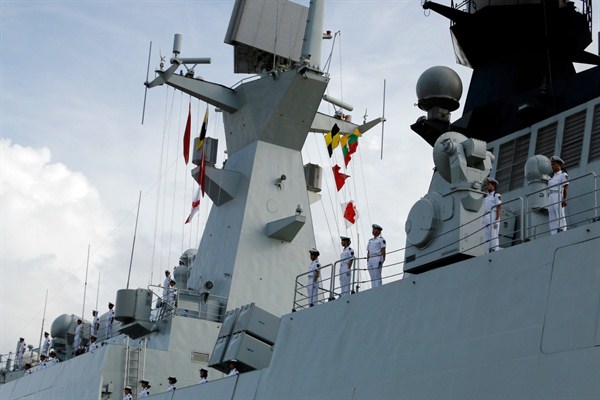About a decade ago, it was all the fashion to speak of China’s “string of pearls”: a chain of bases, ports and even airfields stretching from the South China Sea, through the Singapore-Malacca Straits, across the Indian Ocean and to the Red Sea and the Suez Canal. If not directly owned or controlled by China, this network-of-access would permit the People’s Liberation Army Navy (PLAN), the naval arm of the Chinese military, to become a more or less permanent presence in the Indian Ocean. As a result, the PLAN could secure China’s access to some of its most important sea-lanes of communication, safeguarding the critical flow of energy supplies—and particularly crude oil—from the Middle East and protecting China’s trade routes to Europe.
There was, however, one thing wrong about this argument: There was no “string of pearls” strategy. In fact, it was mainly a Western invention—speculation about an intrigue on the part of the Chinese that did not exist and still doesn’t.
Listen to Richard A. Bitzinger discuss this piece on WPR's Trend Lines Podcast:

